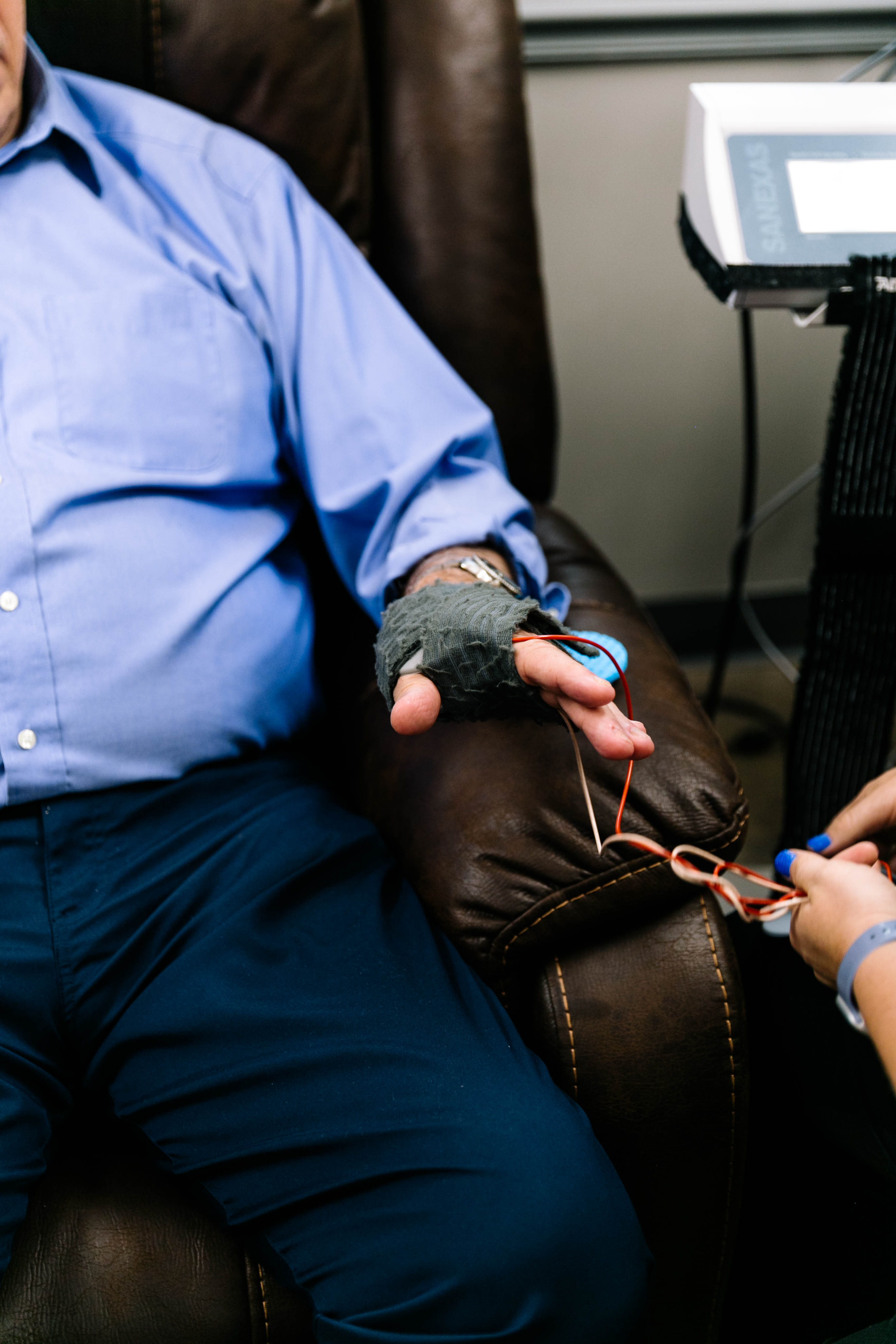WHAT IS DIABETIC NEUROPATHY
People with diabetes can, over time, develop damage to nerves throughout the body. Neuropathy leads to numbness, pain, and weakness in the feet, legs, hands, and arms. Problems may also occur in other areas, including the digestive tract, heart, and sex organs (erectile dysfunction (ED) or vaginal dryness).
50% OF DIABETIC PATIENTS HAVE NEUROPATHY
Persons with diabetes can develop nerve problems at any time. But the longer a person has diabetes, the greater the risk. An estimated 50% of persons with diabetes have some form of neuropathy, though not all those with neuropathy have symptoms. The highest rates of neuropathy are among people who have had the disease for at least 25 years.
WHO’S AT RISK
Diabetic neuropathy is more common in people who have problems controlling their blood sugar, in people with high levels of blood fat and blood pressure, in overweight people and in those patients over the age of 40. The most common type of neuropathy is peripheral neuropathy – also called distal symmetric neuropathy – which affects the legs and arms.


